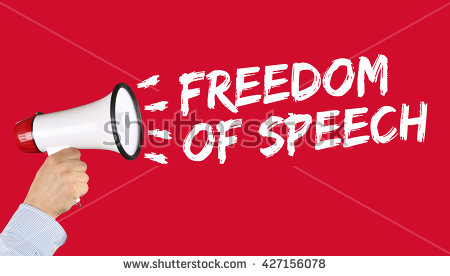Studies Summer 2016. Special Issue: Freedom of Speech. How Far Can You Go?
(Messenger Publications, €10.00)
Joe Carroll
The Summer issue of the Jesuit journal Studies is largely devoted to a discussion of freedom of speech based on talks given to the Parnell summer school in 2015. These talks were inspired by the massacre in January of journalists working for the French satirical magazine, Charlie Hebdo, whose cartoons of Mohammed the Islamic State gunmen had found offensive.
Hundreds of thousands in Paris and around the non-Islamic world marched several days later to protest against the slaughter of the journalists under the slogan ‘Je suis Charlie’. The slogan stood for solidarity with the ideal of press freedom but there are still no unequivocal answers to such questions as: if you defend freedom of speech and expression, how far can you go? Can censorship ever be justified? Is there a right not to be offended by the written word or cartoons? Can western secular values co-exist peacefully alongside Islamic values derived from the Koran which Muslims see as a sacred book like the Bible?
Irish journalists used not to be too concerned about religious sensibilities. Their main pre-occupation was to stay clear of expensive libel cases. They were expected to distinguish between fair comment and defamation of character although the distinction would occasionally be decided in the Four Courts.
Respect
Blasphemy is still a crime under Irish law, but there are doubts if it will ever be enforced. There was an understanding among media that all religions would be treated with respect. This is not always the case at present in the wake of the clerical sex abuse scandals.
Restrictions now exist in Ireland and other European countries on publication of what can be judged as incentives to hatred on the grounds of race, religion or sexual orientation. Yet in the US, often seen as a democratic model, Supreme Court judgements have protected what is called “hate speech” under the First Amendment.
So free speech in one country is a crime in another even in the western secular world. In Islamic countries under Sharia law, no likeness, let alone cartoons, of Mohammed will be tolerated. Western religious art is of course full of depictions of divine figures. Hence it is impossible to lay down clear rules about media treatment of the sacred while taking into account religious and cultural differences and their historical evolution.
Freedom of expression, once a blithe assumption of liberal democracies, has now become a more muddied concept which can lead to loss of life as well as liberty for journalists and writers.
Even universities, often seen as bastions of academic freedom, are, as pointed out in the editorial in this issue of Studies, “pursuing a ‘No Platform’ policy towards speakers whose views they do not, for one reason or another, wish to hear”. The university campus should be a “safe space”, free from emotional harm or potential offence, is the thinking.
In Ireland also, the editorial points out, many “feel that media coverage of important questions of public social policy, particularly such so-called ‘neuralgic’ questions as same-sex marriage and abortion (but there are others), tends to be one-sided to the point of effectively ‘no-platforming’ the ‘wrong’ side easily disparaged – and therefore dismissed – as ‘the religious right’ or the like”.
This is a fair point, but if but if you are editor of a newspaper which editorially favours one side, as is its right, are you obliged to give the same space to opinions from both sides? Muslims claim a right not to be offended by cartoons of the Prophet. Can Christians claim a similar right regarding their own beliefs?
Sacrilege
The more one delves into the ‘freedom of speech’ issue, the more muddied it can become. What is free speech for me is sacrilege for you.
Even within the Catholic Church there are divergences on where free speech ends and unapproved dissent begins, as Fr Gerry O’Hanlon SJ points out in a well-researched article. He quotes from the 1971 Vatican Instruction, Communio et Progressio, that for public opinion to emerge in a proper manner “it is absolutely essential that there be freedom to express ideas and attitudes”.
Not always for theologians, however. And if you accept a party political whip in Dáil Éireann, that means so much less freedom of speech.
Whatever else it is, freedom of speech is not an absolute.


